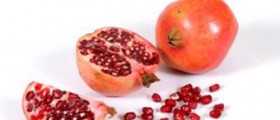
Watermelon can be both the fruit and the plant of a vine-like plant. Watermelon is thought to have originated from southern Africa, and is one of the most common types of melon. Great portion of watermelon is made of the water - around 92%. However, it contains many beneficial nutrients. The most interesting thing about nutritional value of watermelon is that the internal coating, the light green or white area usually avoided for eating, contains most of the nutrients.
Nutritional facts
One serving of raw watermelon contains approximately 154 grams, and has around 46 calories. It is extremely low in saturated fat, cholesterol and sodium. On the other hand, watermelon contains high levels of potassium, vitamin A and vitamin C. One serving of watermelon is sufficient to satisfy about 21% of the recommended daily value for vitamin C and around 18% of recommended daily value of vitamin A. A large portion of the calories in watermelon comes from sugars – approximately 10 grams per serving.
Health benefits of watermelon
Watermelon is a source of some of the most important antioxidants found in foods. Vitamin C and vitamin A, found in watermelon, are extremely beneficial in fighting against free radicals and oxidative damage. Regular intake of watermelon may help to reduce the risk of coronary disease, colon cancer and may significantly slow down the aging process.
Lycopenes, found in watermelon, are very good for the heart. There are approximately 12-20 mg of lycopenes in 2-cup serving of watermelon. Lycopene is an antioxidant that gives tomatoes, watermelon and pink grapefruit, their reddish color. Antioxidants such as lycopene help neutralize free radicals that cause DNA damage. This kind of cells–damage may play an important role in the onset of cancer.
Watermelon is also a perfect food for a dietary approach that lowers blood pressure levels. High potassium levels provide the body with this mineral necessary for optimal water balance inside every cell. Low potassium levels may contribute to muscle cramps and problems with blood pressure.
Watermelon is also beneficial for the skin because it promotes the regenerative processes in it. It may also help to cure acne and different kinds of dermatitis. Combination of water and vitamins in the watermelon may significantly improve skin’s texture and slow down the aging process.
Some new interesting studies have found the evidence to list watermelon as a powerful aphrodisiac – an agent that causes the arousal of sexual desire. Cirtruline, a compound found in watermelon, helps to relax the blood vessels, causing the effect on the libido.

















Your thoughts on this
Loading...